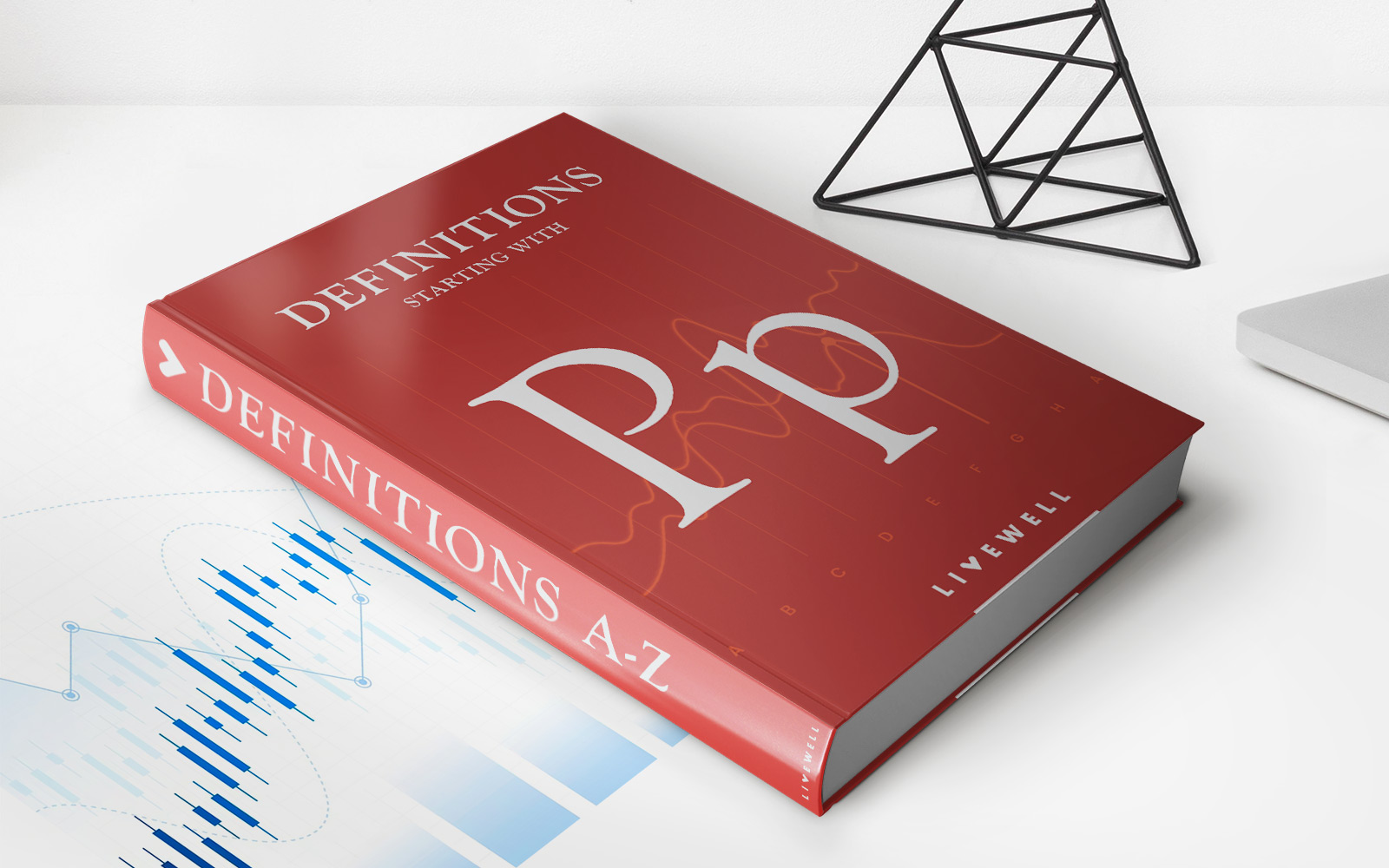Home>Finance>What Are Bonds, Loans, Dividends, Stocks, And Certificates Of Deposit


Finance
What Are Bonds, Loans, Dividends, Stocks, And Certificates Of Deposit
Modified: December 29, 2023
Finance your future with bonds, loans, dividends, stocks, and certificates of deposit. Learn the basics and explore opportunities for wealth creation and financial stability.
(Many of the links in this article redirect to a specific reviewed product. Your purchase of these products through affiliate links helps to generate commission for LiveWell, at no extra cost. Learn more)
Table of Contents
Bonds
A bond is a type of financial instrument that represents a loan made by an investor to a borrower, typically a government or corporation. When you purchase a bond, you are essentially lending money to the issuer in exchange for regular interest payments and the return of the principal amount at maturity.
There are various types of bonds available in the financial market, including government bonds, corporate bonds, municipal bonds, and international bonds. Each type has its own characteristics and risks.
Government bonds, also known as Treasury bonds or T-bonds, are issued by governments to finance their activities. These bonds are generally considered to have low risk since they are backed by the full faith and credit of the issuing government. Government bonds usually offer fixed interest rates and have a predetermined maturity date.
Corporate bonds, on the other hand, are issued by corporations to raise capital for various purposes such as expansion, acquisitions, or debt refinancing. These bonds typically offer higher interest rates compared to government bonds but come with a higher level of risk. The creditworthiness of the issuing corporation is an important factor to consider when investing in corporate bonds.
Municipal bonds are issued by state and local governments to fund public projects such as infrastructure development. These bonds are exempt from federal taxes, making them attractive to investors in higher tax brackets. Municipal bonds are generally considered to be relatively safe investments, but it’s important to assess the financial health of the issuing municipality.
International bonds, also known as foreign bonds or sovereign bonds, are issued by foreign governments or corporations. These bonds allow investors to diversify their portfolios and potentially achieve higher yields. However, investing in international bonds carries additional risks, including currency exchange rate fluctuations and political instability.
Overall, bonds can be a valuable addition to an investment portfolio. They offer a steady income stream through regular interest payments and can help diversify risk. Before investing in bonds, it’s important to carefully evaluate the creditworthiness of the issuer, assess the risks involved, and consider your investment goals and risk tolerance.
Loans
A loan is a financial arrangement in which one party, known as the lender, provides a certain amount of money to another party, known as the borrower, with the expectation that it will be repaid with interest over a specified period of time.
Loans can be obtained from various sources, including banks, credit unions, online lenders, and private individuals. They are typically used for personal, business, or educational purposes and can be secured or unsecured.
Secured loans require the borrower to provide collateral, such as a house or a car, which the lender can seize if the borrower fails to repay the loan. These loans generally have lower interest rates compared to unsecured loans due to the reduced risk for the lender.
Unsecured loans, on the other hand, do not require collateral and are granted based on the borrower’s creditworthiness and ability to repay. These loans often come with higher interest rates to compensate for the increased risk for the lender.
There are different types of loans available to suit various needs. Some common types of loans include:
- Personal loans: These loans are used for personal expenses, such as debt consolidation, home improvement, or medical bills.
- Business loans: These loans provide funding for business purposes, such as starting a new venture, expanding operations, or purchasing equipment.
- Student loans: These loans are specifically designed to finance education expenses, including tuition fees, books, and living costs.
- Auto loans: These loans are used to purchase a vehicle, and the vehicle itself serves as collateral for the loan.
- Mortgages: These loans are used to finance the purchase of a property, with the property itself serving as collateral.
When applying for a loan, the borrower’s credit history, income, and debt-to-income ratio are taken into consideration by the lender to determine the interest rate and terms of the loan. It’s important to carefully review the loan agreement, including the interest rate, repayment schedule, and any additional fees or charges.
While loans can provide access to much-needed funds, it’s crucial to borrow responsibly and within your means. Before taking out a loan, assess your financial situation and consider your ability to repay the debt on time. Failure to repay a loan can result in negative consequences, such as damage to your credit score and potential legal action by the lender.
Dividends
Dividends are a distribution of a portion of a company’s earnings to its shareholders. When a company generates profits, it can choose to reinvest that money back into the business or distribute it to its shareholders in the form of dividends.
Dividends are typically paid out regularly, such as on a quarterly or annual basis, and are often expressed as a fixed dollar amount per share or as a percentage of the stock’s market price, known as dividend yield.
Dividends are primarily associated with stocks, which represent ownership in a company. When you own shares of a company’s stock, you become a partial owner and are entitled to a portion of its earnings. Dividends are a way for the company to share its profitability with its shareholders.
Dividends can be an attractive feature for investors, particularly those seeking income from their investments. They provide a steady stream of cash flow that can be used for various purposes, such as reinvesting in additional shares, paying bills, or funding retirement.
Companies that consistently pay dividends are often referred to as dividend-paying stocks. These companies are typically well-established and have a proven track record of profitability. They are often found in sectors such as utilities, consumer staples, and financial services.
There are different types of dividends, including:
- Cash dividends: This is the most common type of dividend, where the company distributes cash directly to its shareholders.
- Stock dividends: Also known as bonus shares, companies may choose to issue additional shares of stock to shareholders as a form of dividend.
- Special dividends: These are one-time or irregular dividends that companies may pay in addition to their regular dividends, often when they have excess cash or one-time profits.
It’s important to note that not all companies pay dividends. Some younger or growth-focused companies may choose to reinvest their earnings back into the business to fuel expansion or research and development.
When considering investing in dividend-paying stocks, it’s important to evaluate the financial health of the company, its historical dividend track record, and its ability to sustain and potentially grow its dividend payments over time. Dividends should be viewed as one component of a comprehensive investment strategy, alongside factors such as risk tolerance, growth potential, and diversification.
Stocks
Stocks, also known as shares or equities, represent ownership in a company. When you own a stock, you become a shareholder and have a claim on the company’s assets and earnings.
Investing in stocks can offer opportunities for capital appreciation and potential dividends. Stock ownership allows individuals to participate in the growth and success of a company, as well as the potential risks and volatility associated with the stock market.
Stocks are bought and sold on stock exchanges, such as the New York Stock Exchange (NYSE) or the Nasdaq. Investors can purchase stocks through brokerage accounts or investment platforms that provide access to the stock market.
There are two primary types of stocks:
- Common Stocks: Common stocks represent ownership in a company and give shareholders voting rights in company decisions. They offer potential for capital gains and dividend payments but come with higher risk compared to other types of investments.
- Preferred Stocks: Preferred stocks also represent ownership in a company but typically do not come with voting rights. These stocks have a fixed dividend rate and are given priority over common stockholders when it comes to dividend payments and liquidation of assets.
Investors can also classify stocks based on the size and characteristics of the companies issuing them:
- Large-cap stocks: These stocks belong to well-established companies with a market capitalization typically exceeding $10 billion. They are considered to have lower risk compared to smaller companies.
- Mid-cap stocks: Mid-cap stocks belong to companies with a market capitalization between $2 billion and $10 billion. They offer a balance between growth potential and risk.
- Small-cap stocks: Small-cap stocks belong to companies with a market capitalization usually below $2 billion. They can offer significant growth potential but come with higher risk.
Investing in stocks requires careful consideration and research. Factors such as company financials, management team, industry trends, and overall market conditions should be evaluated before making investment decisions.
It’s important to diversify your stock portfolio to mitigate risk. By investing in stocks across different industries and market capitalizations, you can spread the risk and potentially benefit from different sectors’ performance.
Stock market performance can be influenced by various factors, including economic conditions, corporate earnings, interest rates, geopolitical events, and investor sentiment. It’s important to have a long-term investment mindset and not to be swayed by short-term market fluctuations.
While investing in stocks can offer potential rewards, it’s important to note that it also involves inherent risks. Stock prices can be volatile, and individual stocks can experience significant price fluctuations. Investing in stocks should be done based on individual financial goals, risk tolerance, and a well-rounded investment strategy.
Certificates of Deposit
Certificates of Deposit (CDs) are a type of fixed-term deposit offered by banks and credit unions. They are considered to be a low-risk investment option that provides a fixed rate of return over a specified period of time.
When you open a CD, you agree to deposit a specific amount of money with the financial institution for a set period, known as the term or maturity. The maturity period can range from a few months to several years, with longer-term CDs typically offering higher interest rates.
The interest rate on a CD is locked in at the time of purchase and remains fixed throughout the term. This makes CDs attractive to investors who prefer a predictable and secure return on their investment.
CDs are considered to be one of the safest investment options because they are insured by the Federal Deposit Insurance Corporation (FDIC) in the United States, up to certain limits. This means that even if the issuing bank fails, your principal investment is protected.
There are different types of CDs available, including:
- Traditional CDs: These are standard CDs that offer a fixed interest rate and term. At the end of the term, you can choose to renew the CD or withdraw the funds with the accrued interest.
- Callable CDs: Callable CDs give the issuing bank the option to terminate the CD before the maturity date. While these CDs may offer higher interest rates, they also come with the risk of early withdrawal if the bank chooses to exercise its right.
- Jumbo CDs: Jumbo CDs are designed for individuals who have a large amount of money to invest. These CDs typically require a higher minimum deposit compared to traditional CDs and may offer higher interest rates.
- Brokered CDs: Brokered CDs are purchased through brokerage firms rather than directly from a bank. They offer more flexibility in terms of CD options and allow investors to access a wider range of issuing banks.
Before investing in a CD, it’s important to consider your financial goals, liquidity needs, and the prevailing interest rate environment. While CDs offer stability, they may not provide the same returns as other investment options, such as stocks or mutual funds.
Early withdrawal from a CD may result in penalties, such as a reduction in interest earned or a percentage of the principal amount being forfeited. It’s essential to carefully review the terms and conditions of the CD before making a commitment.
Certificates of Deposit can be a useful tool in a well-diversified investment portfolio, offering stability and a guaranteed return. They can be particularly appealing for individuals looking to preserve capital and earn interest over a fixed period. If you’re seeking a low-risk investment option, CDs may be worth considering.














